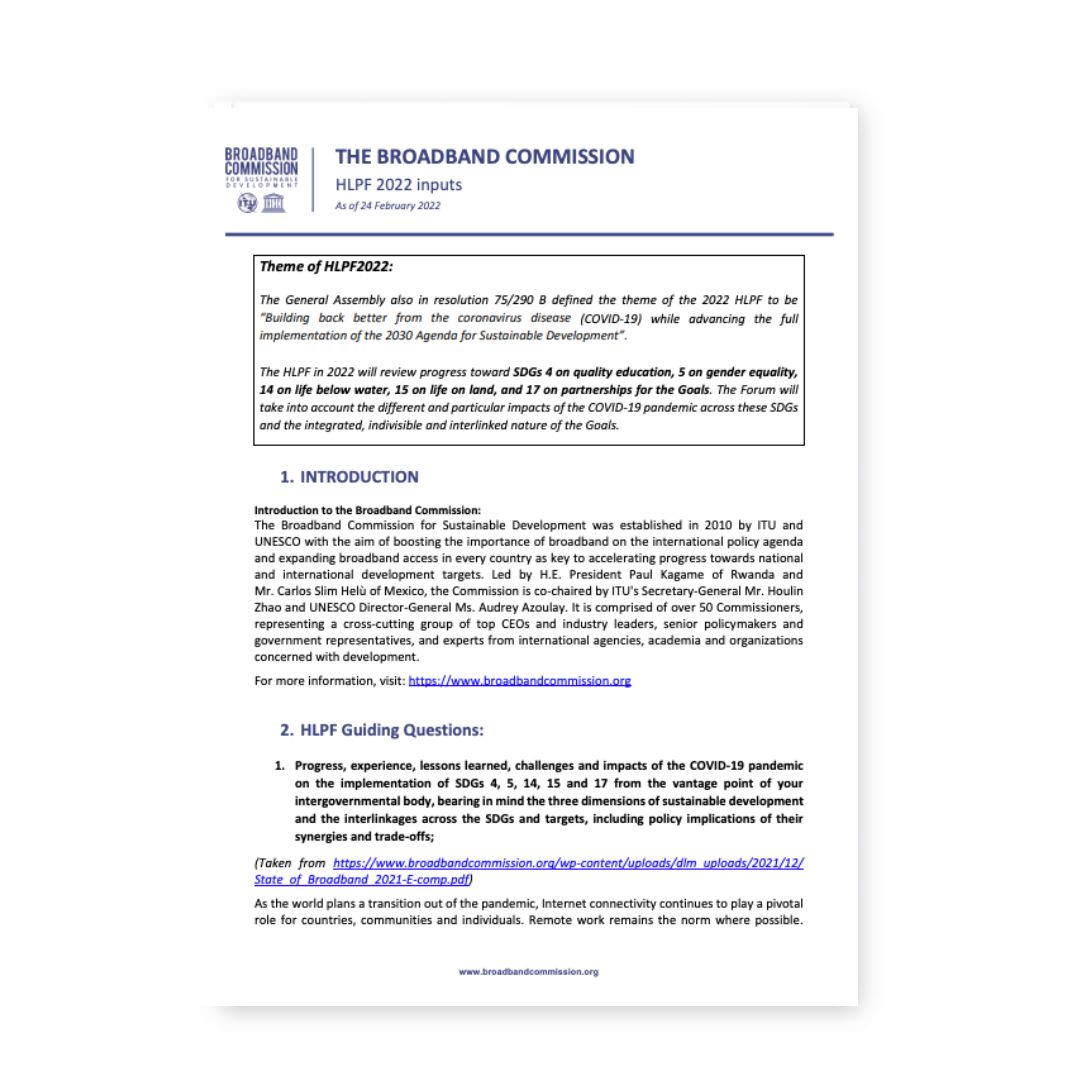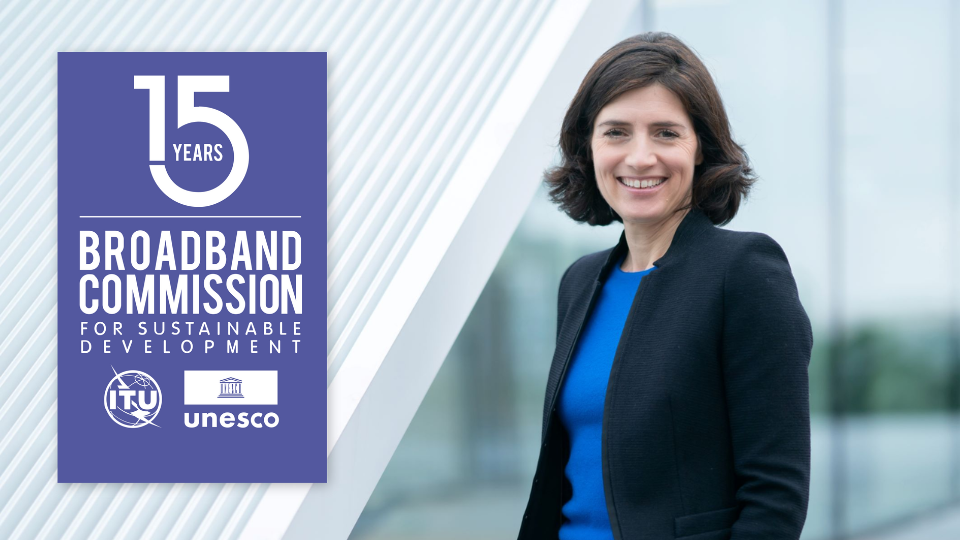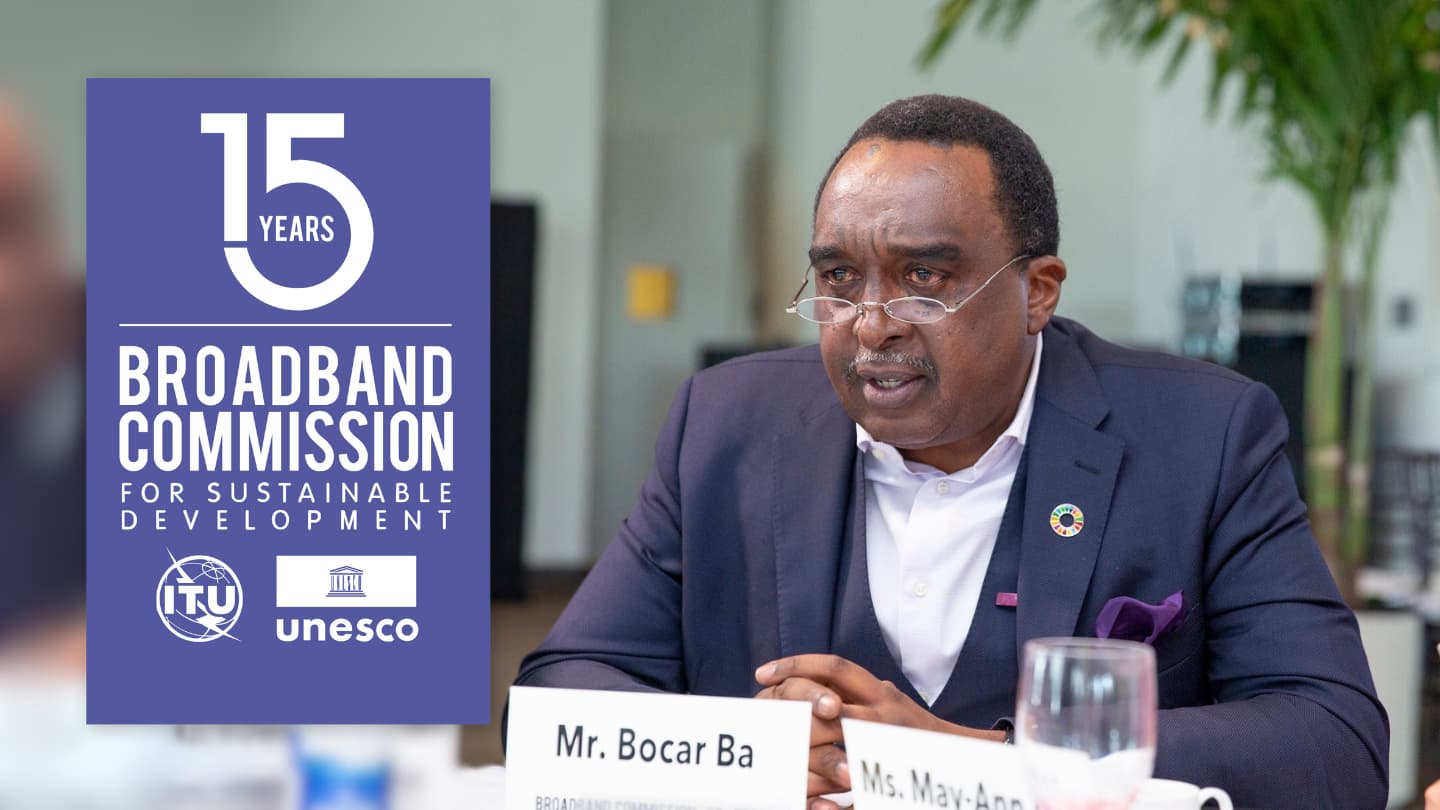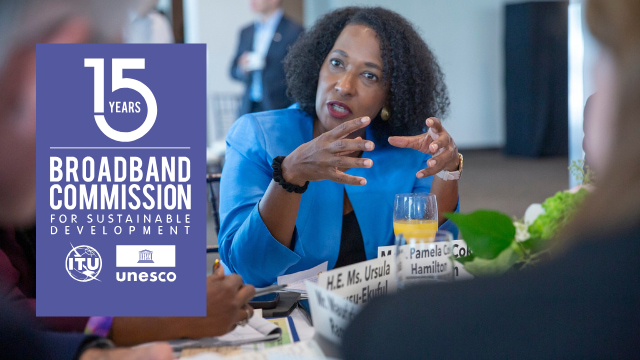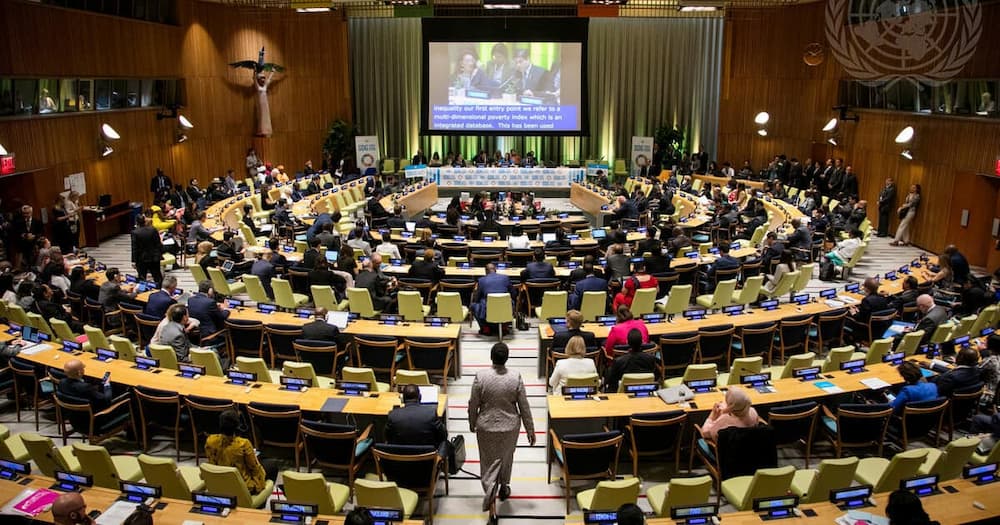
The High-Level Political Forum on Sustainable Development (HLPF), a hybrid event held in New York City and online, is one of the core United Nations platforms for follow-up and review of progress on the UN 2030 Agenda for Sustainable Development and the 17 Sustainable Development Goals (SDGs) at the global level.
The HLPF meets annually under the auspices of the UN Economic and Social Council (ECOSOC), including a three-day ministerial segment, and every four years at the level of Heads of State and Government within the General Assembly. As contributions to the Forum, UN Member States are encouraged and invited to conduct Voluntary National Reviews (VNR) to provide updates and context on their local challenges, successes and lessons learned. These VNRs then help guide actions to accelerate the implementation of the 2030 Agenda for the following year.
The theme of HLPF 2022 was “Building back better from the coronavirus disease (COVID-19) while advancing the full implementation of the 2030 Agenda for Sustainable Development.” The Broadband Commission is honored to have provided substantive inputs to the thematic reviews for several consecutive editions of the HLPF, including HLPF 2022. This contribution presents findings, research, data, and policy recommendations drawn from the Commission’s connectivity-based response to the COVID-19 pandemic (The Agenda for Action) as well as the flagship State of Broadband Report. The Commission’s inputs highlight the importance of multi-stakeholder cooperation and collaborative approaches to bridge the digital divide and increase access to broadband for sustainable and inclusive development. To effectively leverage broadband and adoption of the high-speed digital infrastructure to achieve significant progress towards the SDGs and the 2030 Agenda, the Broadband Commission’s input document suggests that concerted efforts be informed by the recommendations and findings of previous editions of its annual State of Broadband report and other research produced.
Highlighted recommendations from Broadband Commission research include:
- Ensuring public confidence in participating online in the digital economy by increasing efforts to prevent cybercrime and cybersecurity incidents in ways that also protect individual privacy;
- Increasing funding levels and addressing issues of fragmentation (of funding, legislative and regulatory frameworks, investment and distribution) and coordination across regions, government levels, and between public and private sector entities in order to achieve universal broadband adoption;
- Supporting and engaging in innovative partnerships that leverage the unique strengths of each participant in digital infrastructure in order to translate roadmaps and action plans into concrete achievement;
- Addressing environmental impacts of digital infrastructure and unleashing the potential of connectivity to make an outsized contribution to addressing the climate emergency both by helping to build resilience to climate stresses through the use of digital technologies, as well as by demonstrating leadership and investment in commitments to reach net zero, and beyond, in terms of carbon emissions; and
- Employing a people-centric approach, with a focus on individuals and inclusivity in order to ensure no one is left offline.
HLPF references to Broadband over time from Ministerial Declarations
In the past decade, the uptake in use of Information and Communication Technologies (ICTs) has been significant. As illustrated in the ITU’s 2021 Measuring Digital Development: Facts and Figures report, the number of Internet users has grown from 3.4 billion (46% of global population) in 2017 to 4.9 billion in 2021 (63% of global population.) Digital technologies have become even more vital as the COVID-19 pandemic boosted demand for use of digital tools and services like virtual healthcare, online education and work-from-home capabilities. We see this trend reflected in the outcome documents of the HLPF, with the number of references to digital and ICTs for development has increasing over time, and the scope of ICT and digital technologies have become increasingly concentrated on specific issues, like education, gender equality and inclusion.
An analysis of the HLPF outcome documents of the past 6 years presents a positive trend in the inclusion of the ICTs and digital technology in the Ministerial Declarations, indicating an increase in the importance of these tools in sustainable and inclusive development. Starting in 2017, under the HLPF theme “Eradicating poverty and promoting prosperity in a changing world,” the 2017 Ministerial Declaration cited digital technology and ICTs in one paragraph three times, emphasizing that “The spread of information and communications technology and global interconnectedness has great potential to accelerate human progress, bridge the digital divide, including the gender digital divide, and develop knowledge societies, as does scientific and technological innovation across diverse areas”.
In the 2018 HLPF Ministerial Declaration specific references to digital technology and ICTs centered around the digital divide appeared in two paragraphs three times. One reference stated, “A substantial digital divide persists, both between and within countries, and between women and men, and between girls and boys.”
In 2019, HLPF was themed “Empowering people and ensuring inclusiveness and equality”, in that year’s Ministerial Declaration digital technology, ICT and connectivity were referenced in 14 paragraphs, 42 times. This included the statement that “Digital technologies can play an important role in accelerating social development and should be factored into national policies ”
The theme of the 2020 HLPF was “Accelerated action and transformative pathways: realizing the decade of action and delivery for sustainable development.” In the 2020 Ministerial Declaration, digital technology, ICT and connectivity are cited in 3 paragraphs 6 times. References in this HLPF were made specifically in regard to science policy and disaster reduction, as they “will continue to strengthen the science-policy interface through evidence-based policy-making, support for research and development, harnessing science, technology, and innovation, leveraging technologies to build resilience across sectors.” Additionally, the Ministerial Declaration stated, “We will promote capacity-building and technical assistance initiatives as well as innovation and technologies towards advancing the Goals, with a special focus on developing countries, and commit to strengthening cooperation to close the digital divide within and among countries.”
Last year’s 2021 HLPF, was themed “Sustainable and resilient recovery from the COVID-19 pandemic that promotes the economic, social and environmental dimensions of sustainable development.” In the 2021 HLPF Ministerial Declaration digital technology and connectivity are referenced in 10 paragraphs 20 times, half of which focused on making digital technology more inclusive in the economy, especially in health and financial services. The 2021 Declaration also contained many references to closing the digital gap between nations, committing to “strengthening cooperation to close the digital divide within and among countries.”
Building back better from COVID-19 while advancing the full implementation of the 2030 Agenda for Sustainable Development
This year’s 2022 HLPF, titled, “Building back better from the coronavirus disease (COVID-19) while advancing the full implementation of the 2030 Agenda for Sustainable Development” focuses on how to achieve the 2030 Agenda while also helping nations rebuild from the economic crises that resulted from the COVID-19 pandemic.
The HLPF 2022 Ministerial Declaration makes specific references to ICTs, connectivity and digital technologies in 14 paragraphs 33 times, primarily around improving their use in educational settings and ensuring that everyone has access to digital technologies stating, “We encourage promoting digital technologies… access to broadband Internet and technology devices, connectivity, digital inclusion and literacy and incorporating digital competences into the education system.” The COVID-19 pandemic demonstrated the power of digital connectivity in building and maintaining resilient educational system in the face of unforeseen circumstances such as the need for distance learning. This has prompted many governments and organizations to focus on providing digital technologies and implementing holistic policies around broadband.
In summary, broadband and ICTs have proven increasingly more fundamental to achieving the UN 2030 Agenda and Sustainable Development Goals. With the increasing number of references to technology, digital and connectivity in the Ministerial Declarations of the HLPF, the importance of ICT and digital technology continues to be recognized on a global level.
The Broadband Commission at the HLPF
The Broadband Commission was featured throughout the HLPF and its Side Events, both in direct participation by its Commissioners and their respective entities, as well as in the highlighting of its reports and events.
> Friday, 15 July, 2022
On Friday July 15, on the sidelines of the HLPF, The Permanent Mission of Rwanda to the United Nations, the International Telecommunication Union and the Office of the Secretary-General’s Envoy on Technology hosted a briefing on the events and outcomes of the 2022 World Telecommunication Development Conference (WTDC) held in early June, in Kigali, Rwanda. At the event, Permanent Representative of Rep. of Rwanda to the United Nations H.E. Amb. Claver Gagete, Rwandan Minister of Finance and Economic Planning Hon. Min. Uzziel Ndagijimana, United Nations Technology Envoy ASG Maria-Francesca Spatolisano, and Director of the Telecommunication Development Bureau of the ITU and Broadband Commission Executive Director Ms. Doreen Bogdan-Martin gathered to share the outcomes of WTDC and facilitate discussion on the key next steps for reaching inclusive and sustainable digital development. The meeting was attended by several NY Mission representatives, as well as Broadband Commissioner Mr. Piotr Dmochowski-Lipski. The Broadband Commission’s work was highlighted as a key partnership of the ITU, critical for accelerating progress towards the digital development goals underscored at the WTDC and reiterated at the briefing. The Broadband Commission’s 2025 Advocacy Targets continue to align with the priorities and goals identified at the WTDC, as was highlighted at this Friday morning event.
> Friday, 11 July 2022
The HLPF Side Event held on 11 July, titled ‘Advancing Quality Education for Economic and Digital Transformation in the 21st Century’ gathered expert panelists, including Education Ministers from Sao Tome and Principe and Austria, UN agencies WIPO, ITU, and UNIDO, private companies like Ericsson, and several renowned entrepreneurs in educational development to discuss the impact of connectivity on the future of work and education.
The Education Minister of Sao Tome and Principe outlined the many challenges and solutions that their education system faces, calling for greater investments from international sources while Austria discussed the several challenges it currently faces, including digitalization, climate change and globalization.
Ms. Zohra Yermeche, the leader of Ericsson’s education initiative and representative for Broadband Commissioner Mr. Erik Ekudden, highlighted that research today shows that 65% of children entering primary school will ultimately end up working in completely new job types that don’t exist yet. Additional research shows that 40% of the workforce has been impacted by the skill mismatch. The growing gap between the demand and the offer for digital skills in the job market calls for strong private-public collaboration to address our growingly digitally divided society. Ms. Yermeche also emphasized that this advocacy work requires cross-sector collaboration to be effective. As a Broadband Commissioner, an Ericsson advocates for inclusivity and equity in the technology for education.
At the meeting, ITU’s Deputy Secretary-General Mr. Malcolm Johnson also highlighted the need to connect schools, stating, “research estimates that connecting schools’ broadband in countries with low broadband connectivity can boost their GDP by 20%.” He continued, “not only is getting schools connected a prerequisite for advancing quality education but also to equip young people with the skill sets needed to thrive in the digital world.”
School connectivity is a key challenge which Broadband Commissioners have sought to address through multi-stakeholder solutions. The Giga Initiative, for example, was born out of a Broadband Commission Working Group on Education and was later launched in 2019 by ITU and UNICEF. Since then, Giga has connected 3,200 schools and over one million students to the Internet. Mr. Johnson further explained that ITU has made significant progress towards its aim of connecting every school to the Internet. Through the ITU’s multi-stakeholder alliance for fostering meaningful connectivity and global digital transformation, the Partner2Collect Digital Coalition, more than 130 governments, private companies, and other organizations have made pledges, collectively raising over 12 billion dollars to be invested in schools and education systems such as those in Sao Tome and Principe.
> Tuesday, 5 July 2022
Broadband Commissioner Professor Jeffrey Sachs spoke at the 2nd Meeting of the HLPF, where he highlighted the need to take greater strides towards global sustainability and long-term sustainable development. Towards these ends, Professor Sachs called for new financing strategies which “enable developing countries to undertake the energy transformation, to have the children in school, to be able to mobilize the health systems, to achieve universal digital access and other priority investments.” Professor Sachs opened the three-hour long discussion of SDG 17 and Interlinkages With Other SDGs with urgency. “There’s no time to lose” he said.
The Broadband Commission welcomes the findings of the HLPF 2022, especially those referencing the importance of broadband and ICT skills in helping to achieve SDG 4, SDG 5 and SDG 10. These new references will help to focus the efforts of the United Nations system on areas in which organizations can better fulfill the 2030 Agenda through partnerships with governments and private entities and knowledge of digital technology in education and gender. The Broadband Commission is proud to already be doing such work.

